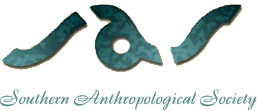Southern Anthropologist
Abstract
This essay explores the relationship between visions of the ideal society that emerge from social movements and local, small-scale socio-economic and cultural projects that might contribute to achieving these ideals. It discusses the concept of sumak kawsay, a term meaning “living well” in the Kichwa language, which has been used in Ecuador to refer to a holistic concept of well-being involving economic, environmental, and social factors. Sumak kawsay originally emerged in the discourse of Ecuador’s indigenous movements, and the country has incorporated the concept, along with its Spanish-language version of buen vivir, into its most recent constitution in 2008. Buen vivir has also been included in Bolivia’s 2009 Constitution. I contrast sumak kawsay with past development strategies and examine the case of the Waira Churi, a Kichwa music and dance group turned tourist and cultural center in the Amazonian region, whose experience with community tourism seems to exemplify the sumak kawsay ideal. I argue for greater consideration of small-scale indigenous collective economic projects and suggest that community-based tourism can play an important role in making sumak kawsay possible in indigenous communities.
Relational Format
journal article
DOI
10.56702/SAOL7955/santh3602/3
Accessibility Status
Searchable text
Recommended Citation
Jarrett, Christopher
(2014)
"Indigenous Politics, Sumak Kawsay, and Community Tourism: A Case Study from Amazonian Ecuador,"
Southern Anthropologist: Vol. 36:
No.
2, Article 3.
DOI: 10.56702/SAOL7955/santh3602/3
Available at:
https://egrove.olemiss.edu/southern_anthropologist/vol36/iss2/3


